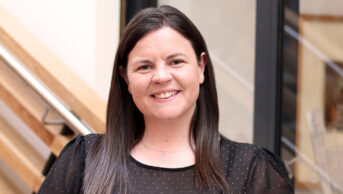
Shutterstock.com
The General Pharmaceutical Council (GPhC) would be open to the prospect of making changes to the registration assessment, Duncan Rudkin, chief executive of the GPhC, has said.
Speaking to The Pharmaceutical Journal on 14 December 2020, following the GPhC’s approval of new standards for the initial education and training of pharmacists, Rudkin said that discussions over the next year and beyond were “inevitably going to have to look at what is the right timing and method for the council to get that overall final confirmation and assurance for registration purposes. It seems to me it would be very odd if the registration assessment were taken as the only, immutable fixed point”.
Rudkin added that the GPhC will “need to work with our partners to look at all aspects of quality assurance, including regulatory quality assurance. So I think it fits within that umbrella to look at the exam in terms of where it is located in the sequence of events”.
Trainee pharmacists currently sit the registration assessment at the end of their preregistration year, but from 2021 the preregistration year will be replaced by a foundation year. From 2025, foundation year trainees will be given independendent prescribing training to enable “simultaneous registration and annotation” as an independent prescriber.
If changes were made, the GPhC would want to ensure that “what’s put in place is better than what we have now. We have a rigorous quality-assured exam in place, but it will need to evolve, as it has evolved over time: including, most recently, in 2016,” Rudkin added.
Rudkin also said that changes to the initial four years of pharmacy education and training, which include the addition of more clinical placements, is not about sacrificing scientific content: “it is about focusing on the application of that in practice” and “in an integrated way, making sure that knowledge, skill and practice are developing alongside each other.
“It’s about doing things differently, rather than about doing less or more of something.”
Nigel Clarke, chair of the GPhC, added that the new standards were a “radical change”, and that, while there will be more content in the MPharm, “it will fit in in a different way.
“It is demanding to qualify as a pharmacist now and it will be demanding in the future, but it will be a different kind of thing,” he said.
Equality, diversity and inclusion, Rudkin said, was “one of the central pillars in this set of reforms”. He added that it was important for the profession, and newly qualified members of the profession, “to have a real depth of understanding into different communities and how healthcare professionals can support individuals in different ways”.
Clarke added: “We want to make sure that the pharmacists of the future are drawn from the widest possible range of backgrounds, and that there are no barriers to entry for the profession.”


